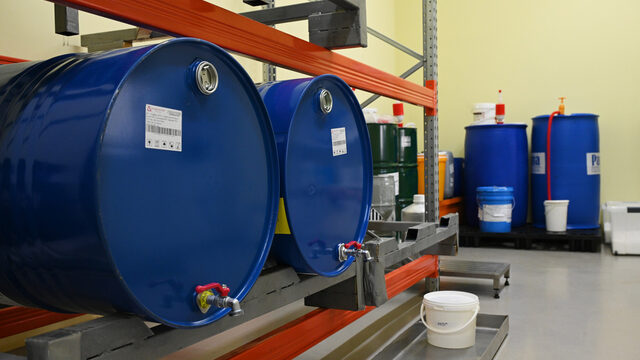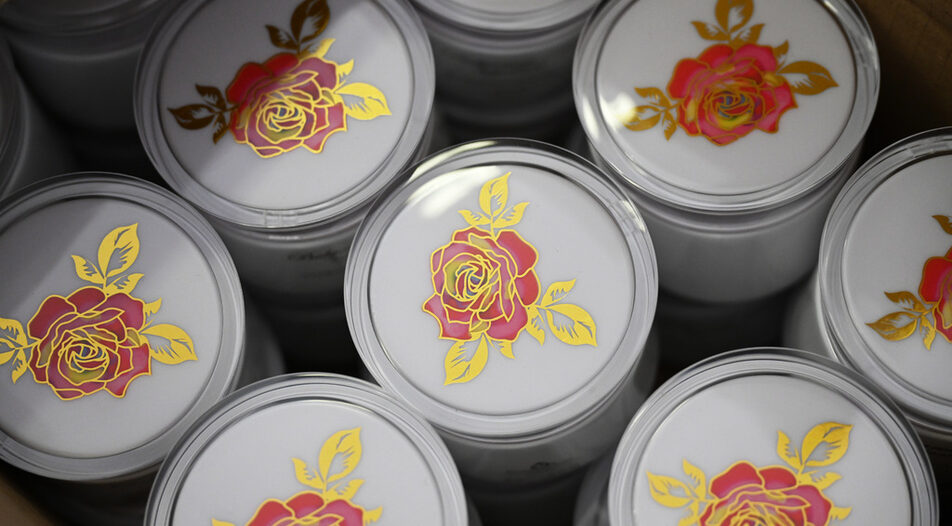In 2021, the European Commission suggested the inclusion of a new article (Art. 5.3) in the revision of Classification and Labeling of Chemicals regulation (CLP) that directly affects essential oils and equates them to chemical substances. It is important to note that, even at the moment, according to European legislation (the REACH regulation - Registration, Evaluation, Authorisation and Restriction of Chemicals), rose and other essential oils are defined as chemical substances and they are required to be accompanied by a so-called safety data sheet (MSDS) that indicates composition, expiration date, etc. before inclusion in a final product. The difference came from the fact that the European Commission's (EC) new proposal affects not only classification, but also labeling, the market and, accordingly, can negatively influence entire sectors of the economy.
At the end of last month, after more than two years of efforts by business and politicians in several countries, the problematic Article 5.3. was completely removed from the draft legislation by a working group at the Council of the EU, and a new clause was added requiring follow-up analysis by the EC to be presented after 4 years - to establish whether the article in question makes sense.
The battle is not yet over, and the ball is now in the hands of the European Parliament, where in the coming months, the decision of the Council's working group will be confirmed or rejected. The final version of the legislation should be ready by October.
Substances, not mixtures
After the topic was circulated for a long time in the media space, with rumors that traditional Bulgarian rose oil would be banned, the EC told KInsights that essential oils are already defined as chemical substances and are regulated as such by current European legislation (the REACH regulation): "As part of ongoing revisions to European legislation, the Commission has no plans to change this definition, nor to start requiring analysis of every molecule in essential oils, nor does it foresee any plan to ban essential oils, including rose oil."
The Bulgarian position (and main interest) presented by the Minister of Agriculture Kiril Vatev in the working group, as well as the other countries - producers of essential oils, including France, Spain, Italy, and to some extent Greece, Hungary, etc., is to exclude essential oils from the CLP, so that they continue to be classified under the current rules as substances and not as mixtures.
During the last EU Council, Bulgarian PM Nikolay Denkov called the regulation "an abuse of science." He specifically asked the President of the European Commission, Ursula von der Leyen, to redefine the text because "it is not as scientific as it should be", and received her understanding, according to a press release from the Ministry of Agriculture.
The business environment is unstable
For Bulgaria, essential oils are an export product, with a net value for 2020 reaching 84 million euros. "The biggest concerns of essential oils' producers in Bulgaria are related to the uncertainty of what lies ahead, of the potential effects on the processing (including more than 400 types of herbs for their production) and producing industries. Essential oils are ingredients not only for pharmacy, perfumery and cosmetics products, but also for the food and beverage sectors," says Nikolay Valkanov, chairman of the Distilled in Bulgaria association and executive director of the Association for Modern Trade.

He also adds that the potential labeling with harmful pictograms will not only repel the companies in the chain, but the market effect of it will have an undeniable socio-economic impact. "In Bulgaria, we are talking about more than 20,000 people (together with seasonal workers), and at an EU level, there are hundreds of thousands of families engaged in the production of essential oils. All of them are the backbone of the local economy, since traditionally the cultivation of crops is located in underdeveloped, mountainous and remote regions without many alternatives for development," says Mr Valkanov.
In addition, many related industries can suffer from huge unanticipated costs and investments to prove the safety of their products, reveals Gergana Andreeva, Executive Director of the Essential Oils, Perfumery and Cosmetics association.
What comes next
Andreeva also says that if Bulgaria was alone in this battle, positive developments in the field would not have been possible. "Nevertheless, the joint efforts of all the Bulgarian MEPs and our permanent representation in Brussels, who acted in a united fashion to defend the Bulgarian interest, are indisputable," says Andreeva.
"All along, my colleague Asim Ademov and I, were right to ask for the deletion of the problematic article, which the council later did," says Andrey Novakov MEP (EPP-GERB) and adds: "During the past months, the entire Bulgarian delegation of MEPs worked as a team. Our coordination with the Bulgarian industries and with the permanent representation was productive and continuous, and the coordination was in the name of the national interest. Through internal sources, it reached us that it was precisely this mobilization that influenced the position of the council. A solid example of how, with proactive position and joint efforts, we are not observers, but drivers of the direction of European legislation."
In October, the European Parliament will vote on its position. The trialogues with the Council and the Commission will then be inaugurated. The legislation is expected to be finalized by the end of the year.
In 2021, the European Commission suggested the inclusion of a new article (Art. 5.3) in the revision of Classification and Labeling of Chemicals regulation (CLP) that directly affects essential oils and equates them to chemical substances. It is important to note that, even at the moment, according to European legislation (the REACH regulation - Registration, Evaluation, Authorisation and Restriction of Chemicals), rose and other essential oils are defined as chemical substances and they are required to be accompanied by a so-called safety data sheet (MSDS) that indicates composition, expiration date, etc. before inclusion in a final product. The difference came from the fact that the European Commission's (EC) new proposal affects not only classification, but also labeling, the market and, accordingly, can negatively influence entire sectors of the economy.
At the end of last month, after more than two years of efforts by business and politicians in several countries, the problematic Article 5.3. was completely removed from the draft legislation by a working group at the Council of the EU, and a new clause was added requiring follow-up analysis by the EC to be presented after 4 years - to establish whether the article in question makes sense.












